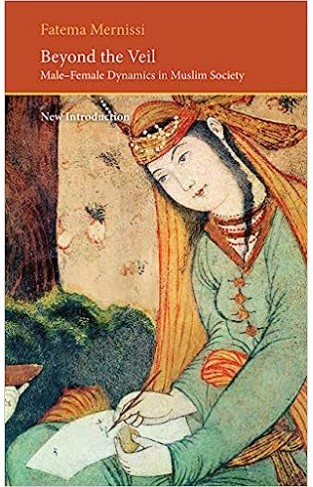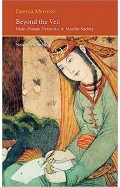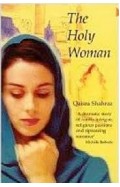Beyond the Veil - Male-female Dynamics in Modern Muslim Society
By: Fatima Mernissi
-
Rs 3,595.50
- Rs 3,995.00
- 10%
You save Rs 399.50.
Due to constant currency fluctuation, prices are subject to change with or without notice.
Mernissi explains that early Muslim scholars portrayed women as aggressive hunters who forced men, reduced to weak hunted victims, to control women by imposing institutions such as veiling, which confined women to the private space. In her new introduction, she argues that women's aggressive invasion of the 500-plus Arab satellite channels in the twenty-first century, including as commanding show anchors, film and video stars, supports her theory that Islam as a religion celebrates female power.
Mernissi explains that early Muslim scholars portrayed women as aggressive hunters who forced men, reduced to weak hunted victims, to control women by imposing institutions such as veiling, which confined women to the private space. In her new introduction, she argues that women's aggressive invasion of the 500-plus Arab satellite channels in the twenty-first century, including as commanding show anchors, film and video stars, supports her theory that Islam as a religion celebrates female power.
Beyond the Veil - Male-female Dynamics in Modern Muslim Society
By: Fatima Mernissi
Rs 3,595.50 Rs 3,995.00 Ex Tax :Rs 3,595.50
Zubin Mehta: A Musical Journey (An Authorized Biography)
By: VOID - Bakhtiar K. Dadabhoy
Rs 892.50 Rs 1,050.00 Ex Tax :Rs 892.50
The Origins of Political Order From Prehuman Times to the French RevolutioN
By: Francis Fukuyama
Rs 4,045.50 Rs 4,495.00 Ex Tax :Rs 4,045.50
Manning Up: How the Rise of Women Has Turned Men into Boys
By: Kay Hymowitz
Rs 845.75 Rs 995.00 Ex Tax :Rs 845.75
The Obama Syndrome: Surrender At Home War Abroad
By: Tariq Ali
Rs 1,100.75 Rs 1,295.00 Ex Tax :Rs 1,100.75
The Quest For Meaning: Developing A Philosophy Of Pluralism
By: Tariq Ramadan
Rs 1,185.75 Rs 1,395.00 Ex Tax :Rs 1,185.75
The Pakistan US Conundrum Jihadists The Military And The People The Struggle For Control
By: Yunas Samad
Rs 1,185.75 Rs 1,395.00 Ex Tax :Rs 1,185.75
An Enemy We Created: The Myth Of The Taliban Al Qaeda Merger In Afghanistan 19702010
By: Alex Strick van Linschoten
Rs 4,197.50 Rs 8,395.00 Ex Tax :Rs 4,197.50
WikiLeaks: Inside Julian Assanges War on Secrecy
By: David Leigh & Luke Harding
Rs 637.50 Rs 850.00 Ex Tax :Rs 637.50
Daughter of the Pirate King Daughter of the Siren Queen book 2
By: Tricia Levenseller
Rs 2,695.50 Rs 2,995.00 Ex Tax :Rs 2,695.50
Zubin Mehta: A Musical Journey (An Authorized Biography)
By: VOID - Bakhtiar K. Dadabhoy
Rs 892.50 Rs 1,050.00 Ex Tax :Rs 892.50
Beyond the Veil - Male-female Dynamics in Modern Muslim Society
By: Fatima Mernissi
Rs 3,595.50 Rs 3,995.00 Ex Tax :Rs 3,595.50














-120x187.jpg?q6)






-120x187.jpg?q6)



-120x187.jpg?q6)



-120x187.jpg?q6)







